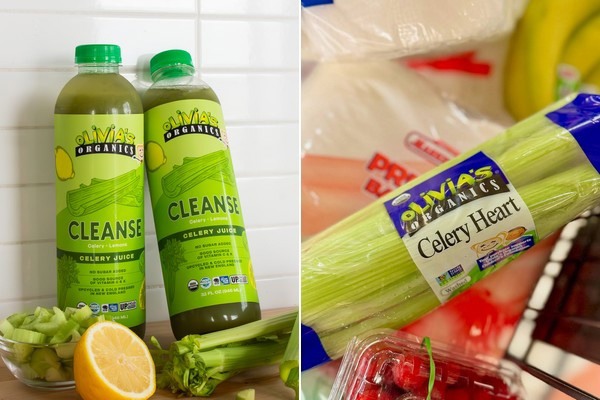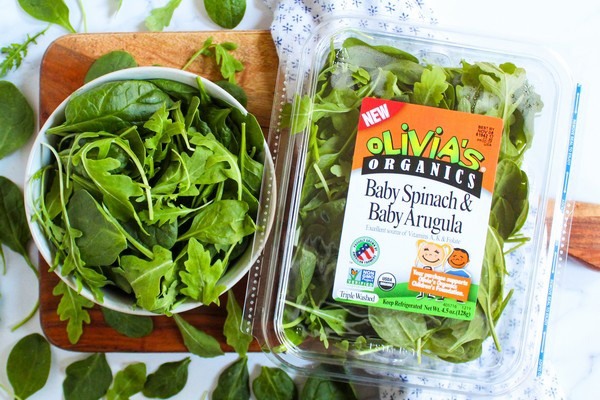As the Olivia's Organics salad brand reaches a milestone of 20 years of existence, things have come a long way since the brand first entered the marketplace. Here, Mark Pins, Vice President of Sales and Operations of Olivia's Organics and State Garden and Tom Thompson, Chief Revenue Officer, share their insights as they reflect on the two decades of the brand in the business.
Changes in the produce industry
Twenty years is a long time to exist in the produce industry and in that time, brands have become more important to consumers. "We're seeing more differentiation in the business and more packaged produce. With the advent of social media, brands are creating a connection with produce that wasn't there before," says Thompson, adding that at the same time, innovation and varietal development–whether it's seed varieties, or purposeful products that are high in protein or high in flavor–have also emerged.
From a trade perspective, Thompson also points to an increasingly sophisticated supply chain that delivers those products to consumers today. "It's much more developed and quicker than when I joined the industry 25 years ago," he says. "That's where we can put ourselves on the map because an extra percent as it relates to shrink mitigation or giving the customer an extra day, those things matter more than they have before."
 © Olivia's Organics
© Olivia's Organics
L-R: Mark Pins, Tom Thompson
More specifically, changes in salads
With that, consumer expectations around produce have also changed, says Pins. "Customers are much more discerning now and they expect more from us. The days of the farmers market, they're not gone, but we are supplying a product that's washed and ready to eat. It's value added which wasn't in existence 25-30 years ago," he says.
In that value-added salad space, what consumers want is different now from a time when iceberg and romaine lettuce dominated the space. "They were the bulk of the category. Now consumers are looking for something that's more ready to eat," he says.
Those changing tastes have allowed products in the tender leaf category to develop in the past two decades and let products such as nutrient-dense and flavor-rich products such as spinach and arugula to take up greater space in the category. "We also see that consumers who have more discerning palettes also tend to be consumers who care about sustainability attributes and that also intersects with the organic customer," says Thompson.
Challenges along the way
Meeting all those interests has been a challenge. For instance, State Garden's data shows that consumers generally want more sustainability and want less plastic. "However, that's contradictory with what you see across consumption trends over the past 10 years where more consumption has shifted to packaged from bulk," says Thompson. "As consumers want more meal-ready solutions–that's the other trend, convenience–those two things contrast sometimes. So how do you provide meal-ready solutions in a package format that's less dependent on plastic? Can the supply chain catch up quick enough where that's not a cost prohibitive path? Right now, there's slightly increased costs to go down that path and will consumers pay it?"
Along the way, the challenge was also fully rounding out what it means to be a sustainable company and do more than just limit herbicides or pesticides. For instance, the company got its start 90 years ago by Giovanni DeMichaelis selling celery out of a pushcart in Boston's north end. Today the company sells value-added products such as celery hearts and sticks. That's processing that leaves excess within the plant. To upcycle that product with sustainability in mind, the company began a juicing program using the byproduct of those sticks and hearts and now produce 32 oz bottles of celery juice. Their juice, whether in their brand or copacked for others, can now be found in over 3,000 retail locations.
 © Olivia's Organics
© Olivia's Organics
The company's juicing program uses the byproduct of its celery sticks and hearts to produce 32 oz bottles of celery juice.
Tying back to community
Along the way the company has also realized the importance of connecting with the community and as Pins points out, the company has earmarked $1 million from the Olivia's Children's Foundation over the next five years to work with numerous charities. This includes its "Random Acts of Freshness" program kicking into gear this fall where the company drops off salads and juices to deserving nonprofits, first responders, and organizations that give back to the communities they serve.
What is also coming back this fall is the company's salad education program, the Green Superheroes School Program. "It's where we give seminars at grade schools to talk about where salads come from," says Pins, adding that the program is coming back following a pause due to the COVID-19 pandemic. "It amazes me how educated kids are around produce and how much they know about where their food comes from."
Looking ahead
So if that's how far the company has come in two decades, what lies ahead? Innovation, says Thompson. "It's moving so much faster than it has, just with technology and information," he says. "At the end of the day, with our farming partners, we are open to alternatives in terms of how we grow, which is why we've made an investment in the greenhouse space. It's why we have commitments to grow conventionally and organically. Fast forward even five to 10 years, we'll be a lot smarter about what grows well in a greenhouse versus what grows well in Salinas versus Florida versus Colorado." That will be of particular interest for the company given today, it grows in five states and has greenhouse operations now.
 © Olivia's OrganicsChanging tastes have allowed products in the tender leaf category to develop in the past two decades and let products such as spinach and arugula to take up greater space in the category.
© Olivia's OrganicsChanging tastes have allowed products in the tender leaf category to develop in the past two decades and let products such as spinach and arugula to take up greater space in the category.
It's also expected that consumers will continue to want and value information about their food as well as demand more purpose-driven products, such as plant protein options or plant-forward meals.
The trick will be to continue to adapt to marketing all of those options. "Other categories in produce have the adage of: stack them high and watch them fly," says Thompson. "That's not relevant within salads because you got 14 to 16 feet of space within salads. Then you're competing against three to five other brands, which includes private labeling and so you have to ask, how do you stand out?"
 For more information:
For more information:
Olivia's Organics/State Garden
[email protected]
https://www.stategarden.com/
